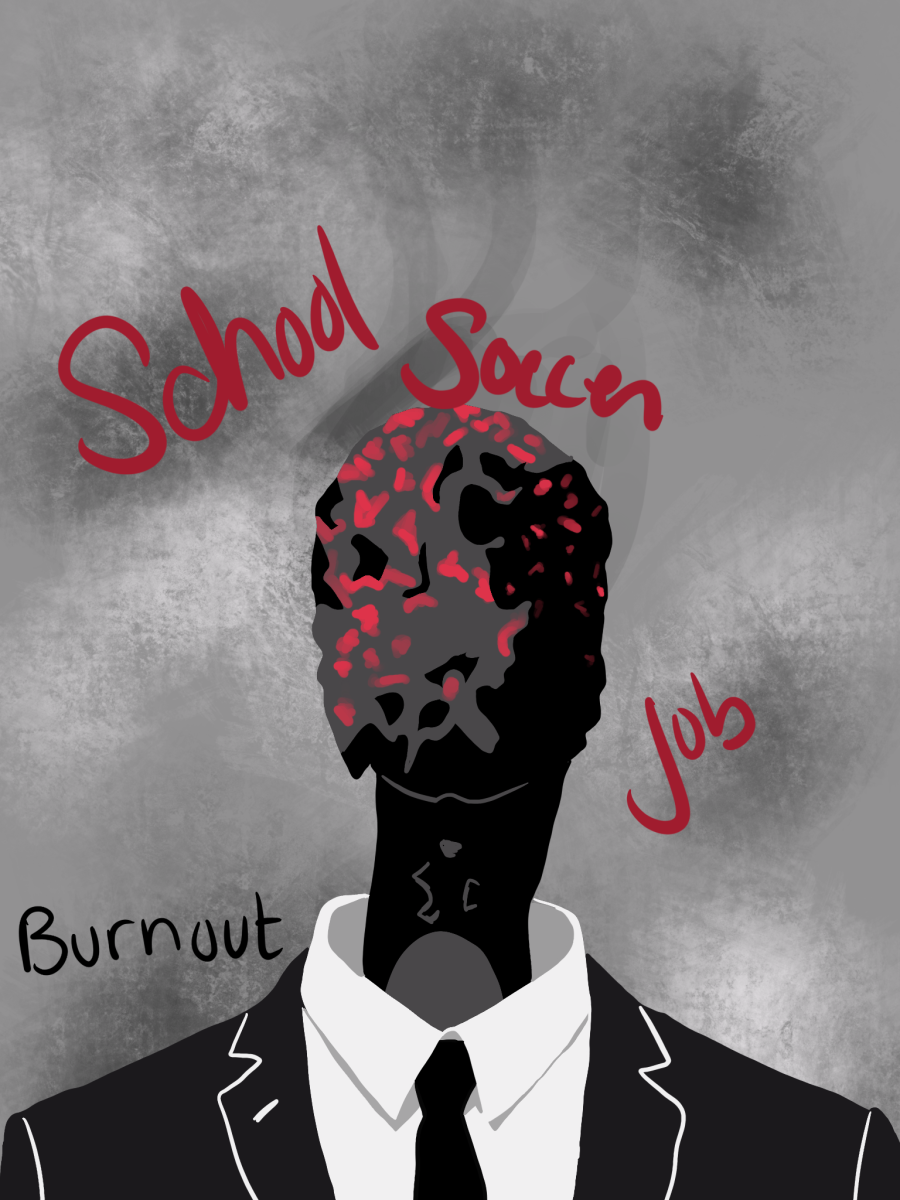Picture this: you made it through the varsity soccer tryouts in the middle of August and you’re managing to balance it with the shifts you’re scheduled for at night. You think you can keep it up when school starts, you only take shifts you can make, whether there’s a break in between practice and work or not. But you start getting home at 9 p.m. and the missing assignments start to pile up. Is it worth it?
Around 20.3% of students between 16 and 19 are employed throughout the school year. Whether it be to help their families out, to have their own spending money, or to just have a sense of responsibility, jobs are seen as a good part of many students’ days. Most adults would argue that balancing school, a job and extracurriculars would build time management capabilities and would help develop different skills. While that is true, it’s important to take breaks to focus on your mental health and studies.
Junior and senior year are considered to be the most important years in high school. Studying for SATs, APs and the ACT, on top of having to focus on college applications and essays doesn’t really leave room for a break to just breathe.
It’s also important to participate and be involved with the different communities in school. Joining clubs and athletic teams or participating in things like STAGE raises morale and gives students something to look forward to after a long day of school. Extracurriculars shouldn’t become just another bump in the schedule along with the shift you’re scheduled for that you just try to get through so that you can get homework done for the five out of seven classes you have.
So many lunches are spent crunching and speed-running homework or class assignments that became homework. It gets exhausting spending the only free time you have on schoolwork.
There’s a pressure that students internalize from adults and other students to handle a job, school and any extracurriculars. If we can’t juggle all of these things, then we aren’t ready for the “real world” that high school tries to prepare us for.
If you aren’t in a position where a solid income is necessary, don’t be afraid to talk to your manager about a temporary break. Take a month off until the season is over, or until you finish college applications or finish preparing for the SAT/ACT.
If you are in a situation where you need to help out financially, talk to your teachers. They are here to help students out and are willing to extend due dates/deadlines based on the situation.
High school students have a lot on their plates and minds already. Adding a solid job to the mix is a recipe for burn out, dropping grades and a decline in mental health. This isn’t a PSA, just a reminder that there are always options and you shouldn’t have to push yourself to mental and physical exhaustion.









